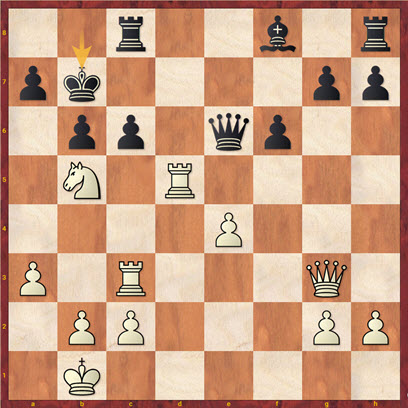These sites all have “live” chessboards, on which you answer questions by moving the pieces on the boards.
Chessable
This is a training site, for everyone from “barely know how to move the pieces” to Master strength. Free and paid training tools. If you blunder a move, you are shown the correct move and replay the move to help fix it in your memory.
The site uses a behavioral training methodology based on current cognitive psychology. If you botch a puzzle, you will be retested on it a short time later; when you whiz through one, it goes to the end of the “review” cycle. Puzzles you fail repeatedly go into a “difficult” bucket, and you retest them repeatedly, as well, with additional training information. Each day (or subsequent new session) you are given some of the previous session’s puzzles to review.
There are plenty of free materials (a whole book of Knight tactics, for example). Some inexpensive original training books are offered, e.g., a book on how to play the Pirc Defense is $4.00. Also, you can buy specialized training books that are translated editions of books you can buy off the shelf. An example is Improve Your Chess Tactics: 700 Practical Lessons & Exercises by Yakov Neishtadt. If you buy this Chessable online version of the book, you work all of its exercises on the virtual chessboards provided by Chessable. All the original book’s text and explanatory materials are here. Some books also have optional video training lessons included for a higher price. The additional videos are mostly more expensive than I would pay. So, I can’t testify to their usefulness.
ChessBase Tactics
This site is free to use, although you have to create a ChessBase user account. The site presents tactical puzzles ranging from one-move idiot mates to complicated multi-move combinations at Master level. The difficulty of puzzles tracks your success. Each puzzle is assigned a rating, and your rating is based on that of the puzzles you solve.
I would say that this site is not for rank beginners. You need at least enough experience at the chessboard to solve basic chess problems. Also, although most puzzles have a “hint” function, many of the hints are so generic as to be useless. “Find the Mate.” Yeah, I had kinda worked that out myself. Or, “Deflect, decoy, distract.” Umm, okay. Only in cases in which multiple hints are offered, will the 2nd or 3rd hints offer useful information (usually), such as which piece to move. (This is not necessarily a dead giveaway. If it’s a pawn move, all the pawns on the board will be flagged, and you have to figure out which one.)
 This puzzle is rated 2170 (just below FIDE Candidate Master level).
This puzzle is rated 2170 (just below FIDE Candidate Master level).
1.Rd8! Be7
2.Rxh8 Rxh8 <- The puzzle is scored here. After which is forced:
3.Qc7+ Ka6
4.Qxa7+ Kxb5
5.a4+ Kb4
6.Qxb6+ Kxa4
7.Ra3+ Bxa3
8.b3+ Qxb3+
9.cxb3# Mate
The point of 1. Rd8 is to remove the Black Rook’s coverage of the c7 square, so that the White Queen can penetrate the King’s defenses. Yes, “Deflect, decoy, distract.”
A wrong candidate move immediately reduces your current rating by a calculated percentage. If your rating is much higher than that of the puzzle, and you blunder it, your rating will be hammered. After that, a successful completion will only partially recover that loss. If you find the right move on the 2nd attempt, you might get back half of the points lost. Each subsequent candidate failure further reduces your rating.
The rating system follows the ELO rating system used by FIDE, the international chess organization, to rate players in its sanctioned tournaments.
ChessBase keeps a ranking or rating list of all users who solve puzzles. As your rating improves, you move “up the ladder” in the rating list. There are currently around 7,000 puzzles to be solved. This count increases regularly.
Chess Puzzles
This is an interesting site for just doing plain old chess puzzles. Again, you move the pieces to indicate your answers, and receive a message according to your correctness. It’s strictly “for fun.” (And, it is fun. It has some good problems.)


